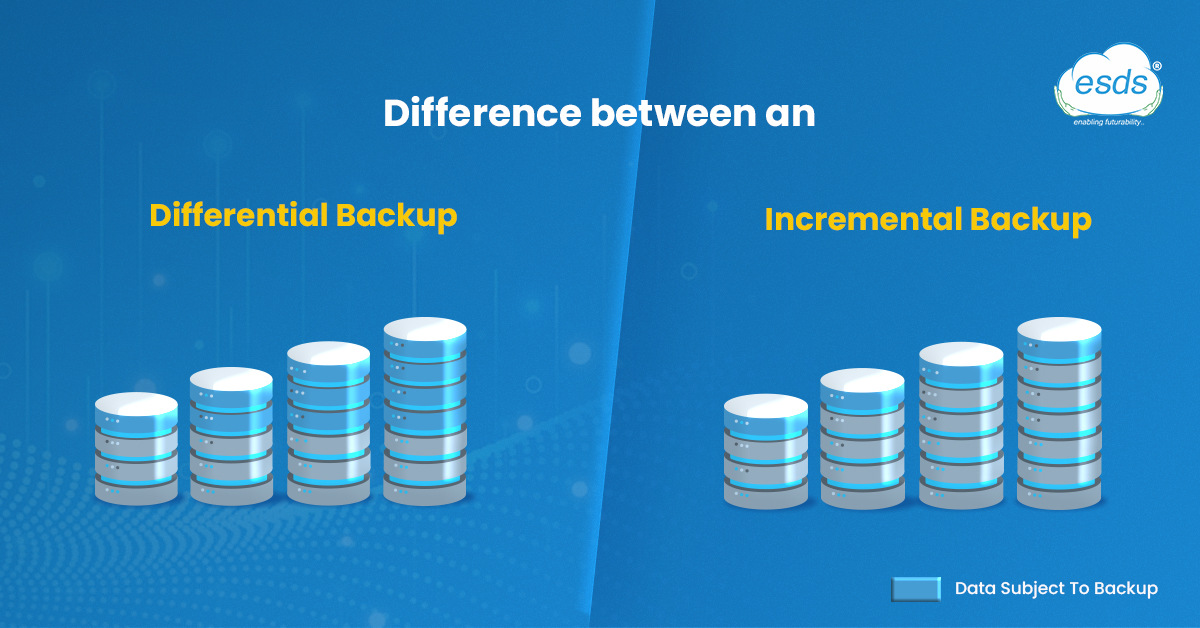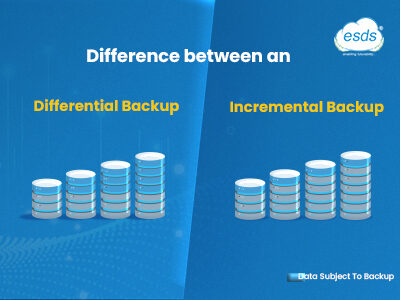Difference between an Incremental Backup and Differential Backup

How important it is to have a backup for your business? Let’s dive into understanding the purpose of a backup and which kind suits your business the best. Having a proper backup is now a crucial component of any effective disaster recovery plan. However, it is concerning that over 50% of businesses have suffered data loss due to either not having a backup system in place or not being able to access their backups when needed. Data has become an extremely valuable asset for businesses in today’s era of digital transformation. Losing this critical data can have severe consequences for organizations across all industries. In fact, a recent report suggests that the average overall cost of data breaches in 2022 was approximately $4.35 million. Backups can help to prevent data loss due to various reasons such as hardware failure, accidental deletion, theft, viruses or malware, natural disasters, or other unexpected events.
Cloud solutions have proven to be highly beneficial in terms of storing data, performing regular backups, and facilitating swift recovery during business operations, aligning with standard industry practices. Having recognized the significance and necessity of backup and recovery, let us now delve deeper into this topic and understand the difference between an incremental backup and a differential backup.
What is an Incremental Backup?
Incremental backup is a type of backup strategy that involves backing up only the changes made to the data since the last backup, instead of backing up the entire dataset every time. In other words, it only backs up the data that has been modified or added since the last backup, reducing the time and storage space required for the backup process. Incremental backups are similar to differential backups in that they also only back up the changed data. However, the difference is that incremental backups only back up the data that has changed since the last backup, whether it was a full or incremental backup. This type of backup is sometimes referred to as “differential incremental backup,” while differential backups are sometimes called “cumulative incremental backups.” Although the terminology may be confusing, it’s important to understand the differences between these backup types to make an informed decision about which one is best for your needs.
Advantages:
- Backup in minimal time
- Needs less storage
- Demand for less bandwidth
What is a Differential Backup?
The concept of differential backups emerged as an advancement in backup strategies. Instead of backing up all files again, a differential backup focuses on backing up only the files that have undergone changes since the last full backup. For instance, if a full backup is executed on Sunday, then only the changed files will be backed up on Monday, Tuesday, and so on until the next full backup. This approach is faster than a full backup since it involves backing up significantly fewer data. However, the data being backed up in each differential backup increases until the next full backup. A differential backup solely retains data modifications made since the previous full backup. This backup method consumes more storage space as it saves all data alterations from the last full backup. It involves fewer repetitive data and restores data quickly, but it requires more time to create a backup.
Advantages:
- No need for more storage space
- For recovery only 2 backups required
Now that we have established both incremental and differential backup let’s chart out their distinctive differences.
| Incremental Backup | Differential Backup |
| Involves producing a series of data copies where each subsequent copy includes solely the portions that have changed since the previous backup copy was created | The approach exclusively preserves the modifications made to the data since the last full backup, rather than storing the entire data again |
| Creating a backup using this method requires a smaller amount of storage space | Compared to an incremental backup, creating a backup using this method requires a higher amount of memory |
| Creating a backup using this method requires less time | Creating a backup using this method requires a longer amount of time |
| Restoring data from a backup created using this method is more challenging | Restoring data from a backup created using this method is simpler compared to an incremental backup |
| This method is suitable for businesses dealing with large amounts of data but cannot allocate enough time for backup procedures | This method is beneficial for small to medium-sized organizations that handle substantial volumes of critical data but are unable to perform frequent backups |
| Contains more repetitive data than a differential backup | Has less redundant data |
The appropriate backup strategy for your company depends on various factors, including your risk management requirements and the total size of your data assets. Some organizations may require a full backup every day, while others may benefit more from weekly full backups and daily differential backups. When evaluating your data backup procedures, it’s also crucial to consider how your cloud backup system can enhance other aspects of your business and adopt a strategic approach.

There is no universal backup method that is suitable for all environments and situations. The appropriate choice depends on the specific requirements of your organization, such as protection policies, available storage and resources, network bandwidth, critical data areas, and service-level agreements. However, the forever-incremental and synthetic full backup types have revolutionized the backup process and are the most advanced and efficient data protection techniques available that can meet the needs of most organizations.
Lastly, analysing your business needs and evaluating the type of backup services best suited can be done well with the help of experts and reliable cloud service partners.
- Unlocking Data’s Time Machine: The Importance of Database Point-in-Time Recovery - August 2, 2023
- Future-Proof You’re Data: Navigating the World of Enterprise Backup and Data Protection Solutions - July 7, 2023
- Unleashing the Potential of Long-Term Data Retention: Exploring Trustworthy Backup - May 31, 2023
